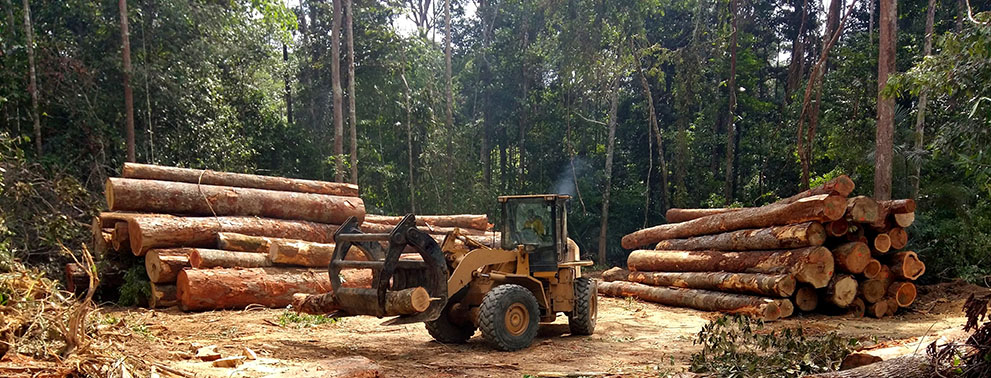
deforestation
Definition
Deforestation is the clearing of forests for human use. This can have a number of negative consequences, including:
- Loss of biodiversity: Forests are home to a wide variety of plants and animals. When forests are cleared, these species can lose their homes and become extinct.
- Increased soil erosion: Forests help to hold soil in place. When forests are cleared, the soil can be easily eroded by wind and water, which can lead to flooding and landslides.
- Climate change: Forests help to regulate the climate by absorbing carbon dioxide from the atmosphere. When forests are cleared, more carbon dioxide is released into the atmosphere, which can contribute to climate change.
There are a number of things that can be done to prevent deforestation, including:
- Planting trees: Planting trees can help to restore forests and offset the loss of trees due to deforestation.
- Sustainable forestry: Sustainable forestry practices can help to ensure that forests are managed in a way that meets the needs of both people and the environment.
- Reducing demand for forest products: Reducing the demand for forest products, such as timber and paper, can help to reduce the incentive to clear forests.
Deforestation is a serious problem that has a number of negative consequences. However, there are a number of things that can be done to prevent deforestation and protect forests.
How can the word be used?
The deforestation of the Amazon rainforest is having a devastating impact on the environment.

Different forms of the word
Noun: deforestation.
Adjective: deforested.
Verb: deforest.
Etymology
The word "deforestation" comes from the Latin words "dē" (meaning "away from") and "forestāre" (meaning "to plant trees"). It literally means "to remove trees from an area.".
Question
Why is deforestation so harmful to the environment?
AQA Science Exam Question and Answer
Question:
Question: Define deforestation and explain its environmental consequences on a global scale. Describe two significant effects of deforestation on ecosystems and climate, and discuss potential solutions to address this pressing issue.
Answer:
Deforestation: Deforestation refers to the clearing of forests on a large scale, primarily due to human activities like logging, agriculture, and urbanisation.
Environmental Consequences:
- Loss of Biodiversity: Deforestation leads to habitat destruction, resulting in the loss of numerous plant and animal species. This disrupts intricate ecological relationships and reduces overall biodiversity.
- Climate Change: Trees play a vital role in sequestering carbon dioxide (CO2). Deforestation contributes to increased CO2 levels in the atmosphere, intensifying the greenhouse effect and global warming.
Solutions:
- Sustainable Forest Management: Implementing sustainable practices like selective logging and reforestation can help maintain forest ecosystems while meeting human needs for resources.
- Conservation and Protection: Establishing protected areas and national parks helps safeguard critical habitats and preserve biodiversity.
Addressing deforestation requires a collective effort involving governments, industries, and individuals to promote responsible land use, support conservation efforts, and adopt sustainable practices to protect our planet's forests and combat climate change.